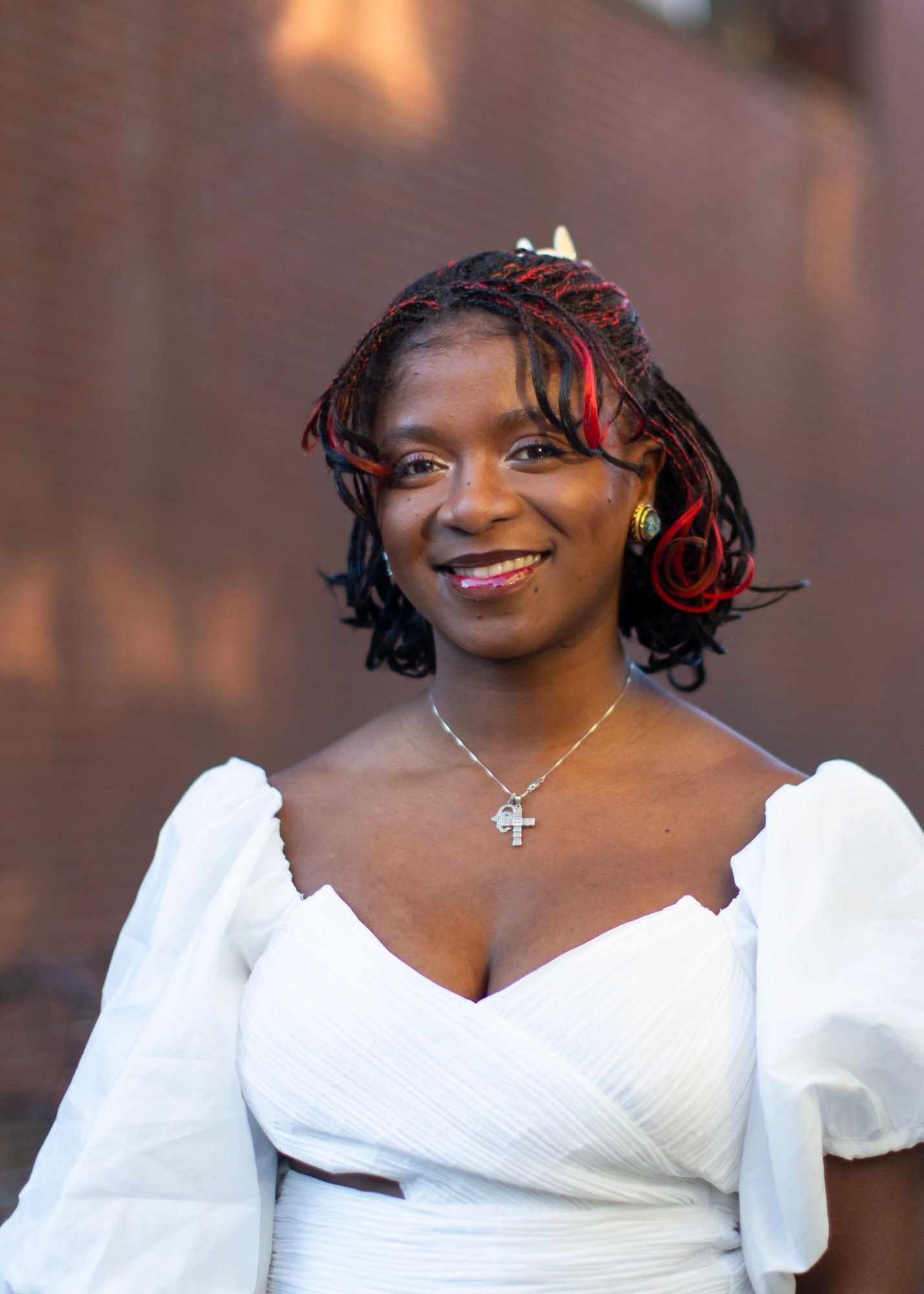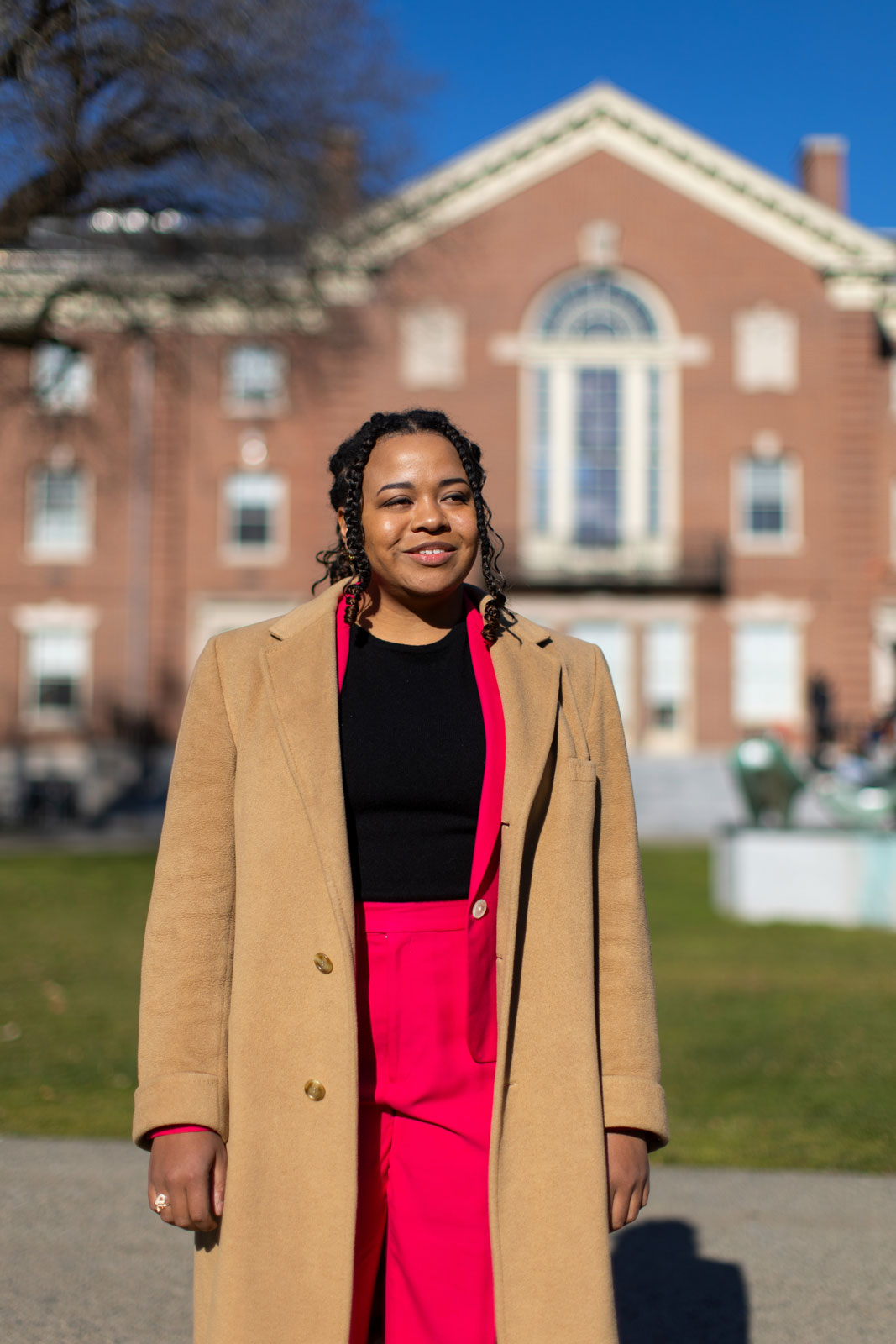PROVIDENCE, R.I. [Brown University] — If you have the freedom to become anything in the world, why not be yourself? After all, you’re better equipped than anyone to do so.
That’s what fifth-year Brown-RISD dual-degree student Ann-Maree Quaynor and Brown senior Imani Stewart will urge their peers as they offer reflections at Brown’s Midyear Completion Celebration on Saturday, Dec. 7.
The ceremony, over which Dean of the College Rashid Zia will preside, honors the approximately 200 “.5ers” who will complete their Brown degree requirements in December. Reasons for finishing studies mid-year vary widely. Some students arrive mid-study after transferring from other schools. Some take a reduced courseload to free up time to volunteer, work or complete an internship. Others travel or pursue creative projects, and sometimes academic or medical circumstances motivate a leave.
Though their stories are different, Quaynor and Stewart have plenty in common: vast and varied interests, a global mindset, and notably, the feeling of being pulled in multiple directions and reconciling that without narrowing their perspectives.
Ann-Maree Quaynor: Pursuing passions to solidify a sense of self
When people asked Ann-Maree Quaynor to tell them who she was, she never knew quite what to say.
The now 25-year-old student couldn’t rely on a hometown. Having grown up in places including Nigeria, Ghana, Cote D’Ivoire, South Africa and the United Kingdom, she called multiple countries and cultures home. Her two biggest passions, art and international development, felt at odds. And an invisible illness left her feeling like she was sometimes living life as two different people.

“I have often been in between things, and it was definitely harder to reconcile when I was younger,” Quaynor said. “But I feel like the dual-degree program, as difficult as it was, finally gave me the opportunity to find the most authentic version of myself. I have a lot more clarity to recognize all the ways in which all parts of me are working together.”
Through the Brown-RISD dual-degree program, students have the opportunity to develop and integrate diverse academic and artistic interests by pursuing degrees at both Brown and the Rhode Island School of Design over five years. Quaynor will graduate with degrees in painting and film studies from RISD and international and public affairs from Brown.
Quaynor originally began her secondary education at a university in England, where she sought to pursue law, but she found herself siloed in a program that didn’t fully engage her.
“I was having a lot of difficulty not being able to tap into my creative side, which has always been such a crucial part of my existence,” she said.
But through the dual-degree program, Quaynor said she was able to unearth how filmmaking and other art practices can be used as a powerful tool for development and activism. One course in particular — Development’s Visual Imaginaries: Still and Moving Images that Shaped the Field, taught by Senior Fellow in International and Public Affairs Geri Augusto — helped pave the way for Quaynor’s academic focus, highlighting the intersections of art, development, history, politics and economics.
